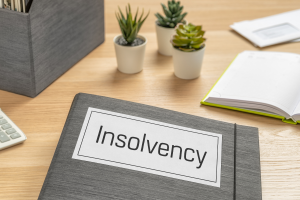Rest assured you are not the only director of a business that finds itself struggling to get back on its feet following the impact of the Covid lockdown(s) on you and your customers. If your business is underperforming it is easy for problems to start spiralling out of control and it is crucial to get the appropriate help and advice from experienced specialist advisers. In our latest blog, we take a look at common issues for directors of businesses in troubled waters.
Is your business struggling following Covid?
At My Insolvency our business turnaround service identifies what needs to be done to get your business back on its feet. We have the knowledge (and grey hairs) to be able to make a difference to your business.
Timing is the key and any delay could leave and your business vessel rudderless and heading helplessly towards the rocks of insolvency and potentially personal turmoil.
Don’t delay your SOS call to My Insolvency any longer as we could help you steer your business away from those rocks which might otherwise sink your business and leave you in dire straits. Delaying that call could well leave you with no chance to ask for help.
Understanding businesses and helping directors navigate their way around/through high seas is something we at My Insolvency are well versed in and with a Licensed Insolvency Practitioner to help you steer to calmer waters.
Do you know what your balance sheet looks like and understand the numbers?
You will be surprised by the number of directors who struggle to comprehend the importance of understanding their business finances, merely answering the accountant/bookkeeper/finance director deals with that is not an acceptable answer. You as a director have both statutory and fiduciary duties when you signed on the dotted line to become a director and regardless of your level of experience, you need to understand those numbers.
Does your business have more assets than liabilities?
Assets must be valued prudently and this means, for example, are there debtors and if so are they collectable and/or should they be written down/off, is there work in progress are there any issues with contracts? If there is goodwill is this shown as having a disproportionately high value (do you know what the goodwill actually is?) then a true value needs to be considered, if there is stock on the balance sheet is the same figure used year in year out yet no stocktake has taken place for years then you need to take hold and appropriate adjustments must be made.
Liabilities should include debts due to your suppliers, government taxes, lenders and consideration for both contingent and prospective debts that your company may face which cannot be quantified until some event in the future.
The terms creditors and debtors and debits and credits are accountancy terms that directors often find confusing especially if they are not well versed with accountancy terminology. Using ignorance as an excuse is not acceptable and directors need to have a firm grasp on these aspects to avoid the rocks of doom and gloom.
The balance sheet test of whether you have more liabilities than assets or vice versa is one of the first tests undertaken in a review of your business. If you have more liabilities then the warning flare needs to go up straight away.
Can you pay your suppliers (creditors) debts when they fall due?
This is the cash flow test.
Example 1. Where your business has purchased goods or services on credit and the terms you entered into with the supplier require your business to pay for these goods or services within say 14 days can you pay the liability on or before the 14th day? If you are unable to pay this debt to your supplier in accordance with the contractual terms entered into then your business could be insolvent.
Example 2 If your company employees individuals and deducts tax and/or national insurance contributions from the individuals pay then your business needs to account for those deductions to HMRC failure to pay as and when they fall due to HMRC means your company may be insolvent.
As a director, you need to be on top of the payment runs to your suppliers/creditors. The cash flow test is a good starting block for understanding a company’s financial well being and its future buoyancy.
Are you under pressure from your suppliers to pay historical debts and have they started to take recovery action?
The legal barometer test is simple, has a creditor obtained judgement or issued a statutory demand and is the debt indefensible? If legal action has commenced then your business needs to be taking immediate action to protect the company’s position and prevent a potential breach of your duties as a director of the company.
Continuing to trade a business past a point when you knew or ought to have known of the company’s financial well being may result in action being taken against you personally. Awareness of your company’s financial position is key, by having good controls and safety systems in place your financial radar can constantly monitor the situation.
If despite all of your best efforts the company is unable to survive then early action is required to avoid the possibility of you being held accountable and facing disqualification from acting as a director in the future.
If you are concerned as to the future of your business then seek out advice from an Insolvency Practitioner at My Insolvency today, we work with you as a director in understanding your business, your concerns and pressures before coming up with a workable solution.
For a free consultation contact My Insolvency today.









